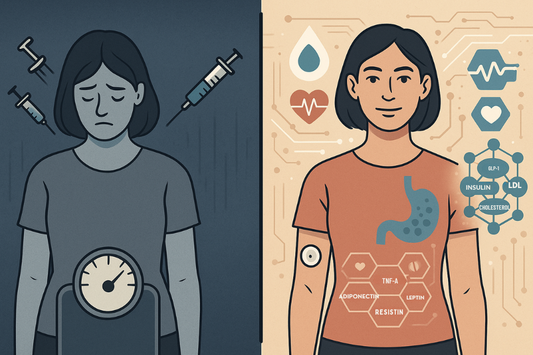Lots of us need it, but is there a safe way to take it?
Supercharging Vitamin D3 with Vitamin K.
The B vitamins, magnesium and vitamin D.
How much should I take - what should I aim for?
Is vitamin D a vitamin?
Three conditions that vitamin D will improve this winter
Dry skin and eczema: Vitamin D is anti-inflammatory. Along with the correct dose of omega-3 3, it significantly reduces the incidence of eczema.
A study published in Nutrition reviewing Vitamin D and eczema has shown the benefits of reducing symptoms.
Results for eczema improvement are seen after a month, but a minimum dose of 2000iu is required. Some practitioners suggest a much higher dosage.
ENERGY!! The anti-hibernation vitamin. It seems that when vitamin D levels are high, it stops the body from slowing down and going into a slower winter state. Therefore, energy levels are much higher.
Chest infections: Vitamin D supplementation is protective against respiratory infections. If you have children who suffer from asthma, a study in Canada showed vitamin D supplementation caused a 50% decrease in children being admitted to hospital with asthma attacks brought on by infections. A recent study in the Lancet showed it reduced attacks and the need for steroids. There are some simple gummy vitamin D supplements that kids are more than happy to take!
- Niruban, S.J., Alagiakrishnan, K., Beach, J., et al., Association between vitamin D and respiratory outcomes in Canadian adolescents and adults. J Asthma, 2015: p. 1-33.
- Gupta, A., Bush, A., Hawrylowicz, C., et al., Vitamin D and asthma in children. Paediatr Respir Rev, 2012. 13(4): p. 236-43; quiz 243.
- Schwalfenberg, G. K. A review of the critical role of vitamin D in the functioning of the immune system and the clinical implications of vitamin D deficiency. Molecular nutrition & food research. 2011 Jan; 55 (1): 96-108.
- Maynard MT. Vitamin D in Acne: A Comparison with X-Ray Treatment. Cal West Med. 1938 Aug;49(2):127-32






